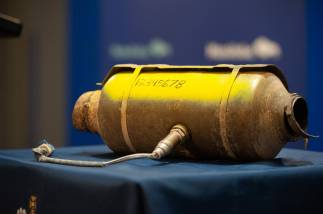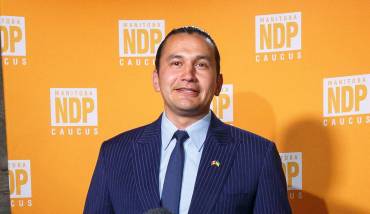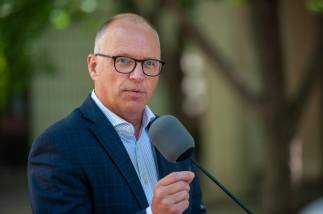Time for candidates to explain spending plans
Read this article for free:
or
Already have an account? Log in here »
To continue reading, please subscribe:
Monthly Digital Subscription
$0 for the first 4 weeks*
- Enjoy unlimited reading on winnipegfreepress.com
- Read the E-Edition, our digital replica newspaper
- Access News Break, our award-winning app
- Play interactive puzzles
*No charge for 4 weeks then price increases to the regular rate of $19.00 plus GST every four weeks. Offer available to new and qualified returning subscribers only. Cancel any time.
Monthly Digital Subscription
$4.75/week*
- Enjoy unlimited reading on winnipegfreepress.com
- Read the E-Edition, our digital replica newspaper
- Access News Break, our award-winning app
- Play interactive puzzles
*Billed as $19 plus GST every four weeks. Cancel any time.
To continue reading, please subscribe:
Add Free Press access to your Brandon Sun subscription for only an additional
$1 for the first 4 weeks*
*Your next subscription payment will increase by $1.00 and you will be charged $16.99 plus GST for four weeks. After four weeks, your payment will increase to $23.99 plus GST every four weeks.
Read unlimited articles for free today:
or
Already have an account? Log in here »
Hey there, time traveller!
This article was published 20/09/2022 (1181 days ago), so information in it may no longer be current.
It’s difficult to imagine a more inopportune time for the City of Winnipeg to take on new spending commitments. With a structural deficit that is showing no signs of improvement and a capital budget severely constrained by rising interest rates and historically high debt, the city can barely pay for existing services, much less venture into new areas of responsibility.
Despite that, mayoral candidates in the 2022 civic election campaign are promising voters all manner of new spending, from more frequent transit buses and better roads to new addictions treatment centres, safe injection sites and not one, but two, proposed city-run water parks.
Some want expanded library services and others want more spending on housing. Many of the proposals have merit. Indeed, some are sorely needed, particularly when it comes to addressing social inequities and combating the root causes of crime. However, no mayoral candidate has presented a realistic plan for how to pay for them.
Since the city cannot incur deficits in its operating budget, and because there is little room left to borrow for capital spending, the city only has two options to finance new or expanded programs: raise taxes, or reallocate existing resources. Candidates have to choose one, or both, if they propose new spending.
Voters need to know precisely where the money would come from to pay for proposed new expenditures.
Promising to lobby senior levels of government for increased funding, or making theoretical arguments that higher spending in one area of city operations might save money in another, won’t cut it. Voters need to know precisely where the money would come from to pay for proposed new expenditures.
Candidates should be realistic with their promise-making. Unless they are prepared to raise taxes, there is little – if any – room in the city budget to expand services. The city is projecting a $55.9-million deficit in its general revenue fund in 2022, and an additional $14.7-million deficit for Winnipeg Transit.
COVID-19 continues to put a strain on city finances. A $41.3-million financial impact from the novel coronavirus was built into this year’s budget; an additional $10.9 million has since been identified. The city is facing additional costs this year of $40.3 million from unbudgeted snow removal and ice control. There are also higher fuel costs to contend with, and price inflation throughout city operations.
Transit ridership remains stubbornly below pre-pandemic levels, forcing the utility to use up most of its retained earnings. Unions representing city staff, including police, are bargaining for inflation-adjusted wage increases. The city has been drawing down reserves throughout the pandemic and will continue to do so this year.
MIKE DEAL / FREE PRESS FILES
The so-called rainy-day fund is expected to be reduced to $20.1 million by the end of 2022 (to cover this year’s projected deficit), $51.6 million below the minimum level mandated by city council. Add to that a $6.9-billion infrastructure deficit, and it’s clear the city has very little fiscal room to manoeuvre.
There are some savings to be found at city hall, including in areas where waste can be identified. A recent Free Press investigative series on traffic signal infrastructure exposed a significant amount of unnecessary spending in public works. There are savings and efficiencies that can be found elsewhere.
However, if candidates are proposing to reallocate resources through cost-saving measures, they should specify where and how much. If they plan to raise taxes, as mayoral candidate Scott Gillingham has proposed, they should provide details. Voters deserve clear and realistic election-campaign proposals.













